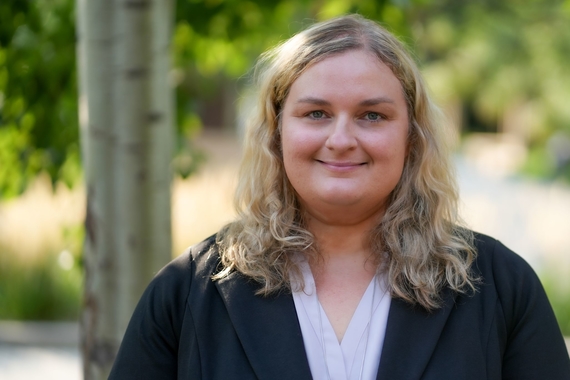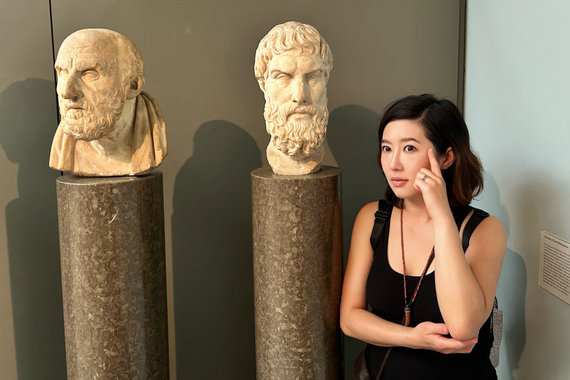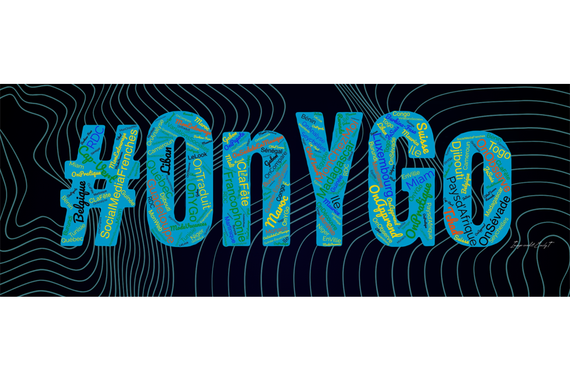Languages Bring Minneapolis and Morris a Little Closer
At the University of Minnesota, students learn a wide variety of world languages, and some of these languages are taught remotely by instructors from across the country. Technology allows people to communicate in multiple languages around the globe. Beginning fall 2018, it will also be used to bridge the three-hour divide between Minneapolis and Morris.
For over a decade, the Twin Cities (TC) campus has been an active participant in the Big Ten Academic Alliance CourseShare program, which uses technology to send and receive less commonly taught language and culture courses with partner institutions in the Big Ten. This program provides students with access to courses they need for their academic and career goals, and connects them with students and scholars across the country. It also brings research universities closer together through resource sharing and collaboration.
In 2017, University of Minnesota language department faculty and coordinators began to explore the possibility of applying the concept of language course sharing to the University of Minnesota system. A model for a system-wide campus language exchange exists at the University of Wisconsin, which has been home to the Collaborative Language Program since 1998. The coordinator, Lauren Rosen, was very generous with her time and expertise, and met online and in person with Minnesota representatives several times to discuss how to launch and sustain such a program.
TC and Morris faculty identified a student need: Morris offers students a beginning Latin sequence, but students cannot currently continue to the intermediate level through traditional coursework. The TC Classical and Near Eastern Studies department (CNES) offers an intermediate Latin sequence (one semester of prose, and one of poetry) each year. Enrollment in these courses is healthy, but there is potential for more growth. Providing access to this course to Morris Latin students would allow interested students to continue beyond the first year and bring more diversity to the CNES course.
TC Latin Coordinator Stephen Smith worked with Morris Professor Lisa Bevevino to arrange for a pilot exchange of one section Intermediate Latin Prose during the fall semester of 2018-2019 academic year to be followed by Intermediate Latin Poetry in the spring. In the spring of 2018, registration for the fall 2018 course opened for Morris students. The original plan was to pilot an exchange exclusively with these Latin courses. However, when a flier advertising the TC American Indian Studies Dakota curriculum reached the Morris campus this summer, administrators wondered if offering the Beginning Dakota sequence to Morris students could enrich the offerings of their Native American and Indigenous Studies department, and meet an identified need for some students. And so, the pilot exchange program quickly expanded to include two courses for fall 2018.
Students at Morris register for these two courses as they would any course at their home institution, and the TC instructors, Stephen Smith (Latin) and Wayne (Joe) Bendickson (Dakota) appear as the instructor of record. The program is being supported on both campuses by the academic departments, IT departments and Registrars offices, and coordinated by the Language Center, which is also responsible for administering CourseShare.
The Latin and Dakota courses are being taught in newly renovated video conferencing classrooms, which feature cameras that automatically track anyone who speaks and ceiling array microphones. The Morris students will meet in a room with compatible technology. The goal will be to provide a unified experience for all students and the feeling of learning together in the same space.
The success of the pilot will be assessed at the completion of the fall 2018 courses. The program though has already begun increasing communication and collaboration between the two campuses, as well as sparking technical innovation.


